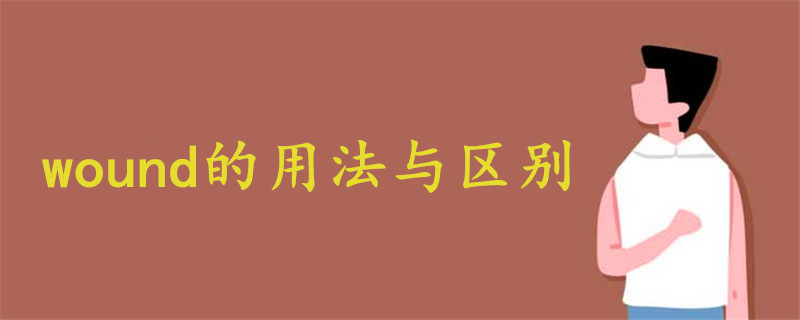wound的用法与区别:wound可作名词,含义为“伤口”、“心灵上的创伤”、“武器造成的伤”;wound还可作及物动词,含义为“使身体受伤”、“使心灵受伤”、“伤感情”。它是wind的过去分词和过去式形式。

wound的中文意思及用法介绍
1、作为名词时,译为伤口;(身体上的)伤;(武器造成的)伤;(心灵上的)伤,创伤。
例句:He died from the wounds he had received to his chest.
他由于胸部受伤而死亡。
Seeing him again opened up old wounds .
再次见到他打开了旧的创伤。
The wound is healing nicely...
伤口愈合得很好。
She has been so deeply hurt it may take forever for the wounds to heal.
她内心受伤太深,也许再也无法愈合。
Pressure applied to the wound will stop the bleeding.
压住伤口可以止血。
Blood began to coagulate around the edges of the wound.
血液开始在伤口的边缘凝固。
Seeing him again opened up old wounds.
再次见到他打开了旧的创伤。
The emotional wounds of early childhood leave ineradicable scars
童年早期的情感创伤留下了难以抚平的伤痕。
2、作为及物动词时,译为使(身体)受伤;(用武器)伤害;使(心灵)受伤;伤感情。
例句:He had been wounded in the arm.
他的手臂受过伤。
She felt deeply wounded by his cruel remarks.
他那刻薄的话语使她感到深受伤害。
A bomb exploded in a hotel, killing six people and wounding another five...
一枚炸弹在一家旅馆爆炸,造成6人死亡,5人受伤。
He was deeply wounded by the treachery of close aides...
他被亲密助手的背叛深深地伤害了。
My children have wounded me in the past.
我的孩子们过去曾伤害过我。
To speak of his death so regardlessly, wounded her feelings.
这样不经意地谈到他的死,伤了她的感情。










